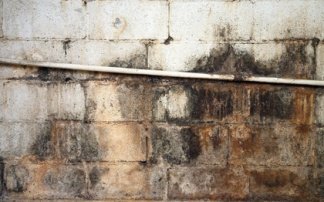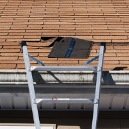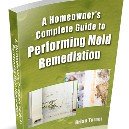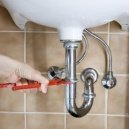Find a pre-screened local mold removal specialist Free Estimate
Find a Mold Specialist Now
Click or Call, Toll-Free 24/7
Dealing With Mold Smell
 Mold found in basement after homeowner noticed a moldy smell.
Mold found in basement after homeowner noticed a moldy smell.You’re probably familiar with the musty mold smell sometimes found in basements, attics, crawlspaces, and other areas where mold grows. It’s an unpleasant odor, and we are often asked about the best method of mold odor control.
Why Does Mold Have A Musty Smell?
Mold produces gasses called microbial volatile organic compounds (MVOC). Many of these gasses are odorless but some have a musty odor, the smell typically associated with mold. If you notice a musty odor in your home, you probably have mold growing there, even if you don’t see any mold. Mold often grows in hidden places, like inside walls, under carpets, and inside heating and ventilation ducts.
What Does It Mean if You Smell Mold?
It’s important to realize that if you smell the musty odor of mold, that means you are inhaling compounds produced by the mold and are probably also inhaling mold spores. Some of those compounds are toxic (called mycotoxins) and those toxins, as well as the actual mold spores, can cause a wide range of medical problems such as difficulty breathing, sinus infections, bronchitis, pneumonia, migraines, sore throats, depression, joint pain and inflammation, exhaustion, and digestive problems. Yes, mold has an unpleasant odor and you probably don’t want your home to smell musty, but the potential health problems are of much greater concern than the unpleasant mold smell.
Mold Odor Control
The only way to really control the mold smell is to remove the mold. Air fresheners, disinfectant sprays, and common household cleaning products may temporarily cover up the smell but they won’t really get rid of it. Scented candles, incense, and potpourri are some other ways people sometimes attempt to disguise the musty odor of mold, and none of them work very well, either. The only truly effective method of mold odor control is to remove all household mold.
Of course, removing mold is not only important because it will improve the smell of your home. Removing mold is important if you want to be healthy, since mold can cause so many medical problems.
Testing Your Home for Mold
If you notice a musty odor in your home, we recommended testing your home for mold. Even if you’ve spotted some mold in your home, it may be helpful to test for additional mold in other areas of the home. That’s because most types of mold spread quickly and easy from one area of the home to another and mold often grows in places where it’s not easily seen, like under carpeting and floorboards, above ceiling tiles, inside walls, and inside heating and air conditioning ducts.
You can purchase mold test kits at many home improvement stores, but we recommending calling in a professional to test your home for mold because mold tests are very sensitive and must be performed just right in order to provide accurate results. There are also different types of mold tests, including those meant to sample the air for mold and those meant to test for mold on surfaces, and in order to get accurate results you need to know which type of test to use and where in the home to conduct the test. A certified mold tester can help you find mold you might otherwise miss.
Most certified mold testers are actually engineers and they are highly trained professionals. Not only do they know how to properly conduct mold tests, but they know how to interpret the results and can tell you what levels of mold are expected in your area and what levels are potentially harmful to your health. For a list of certified mold testers in your area, follow the link.
Return From Mold Smell To Home Page
Free Home Inspection By A Mold Removal Specialist
Search This Website
Recent Articles
-
See Our 5 Recommended Mold Removal Companies in Covington, KY
Apr 16, 25 12:59 PM
-
See Our 5 Recommended Mold Removal Companies in Wheaton, IL
Jun 20, 24 10:33 AM
-
See Our 5 Recommended Mold Removal Companies in Aberdeen, SD
Oct 08, 21 04:05 PM




